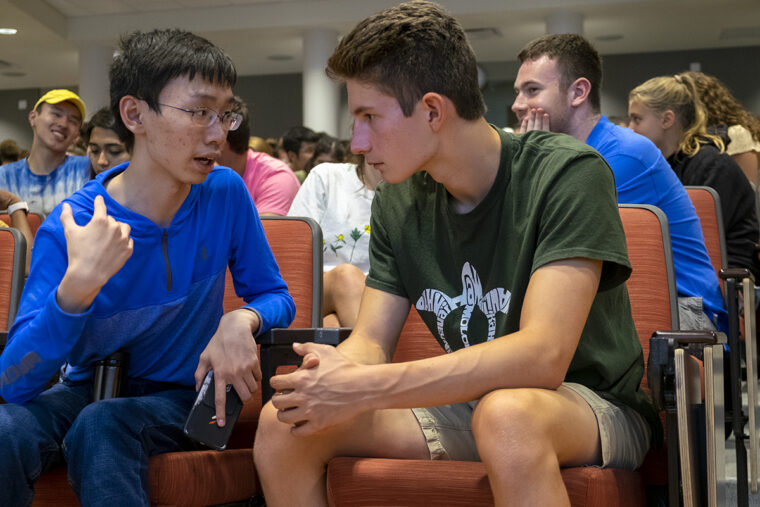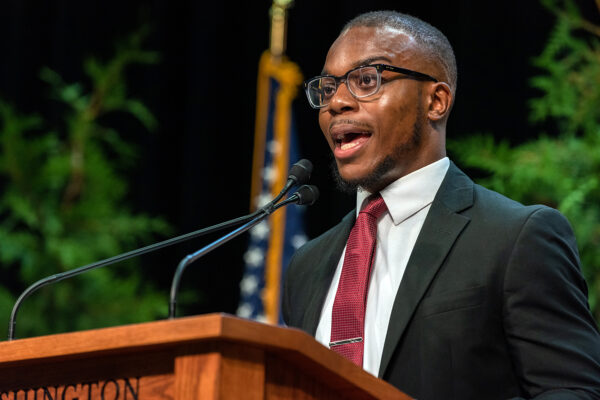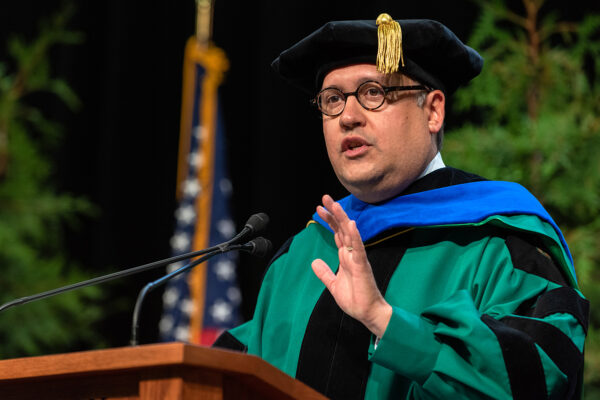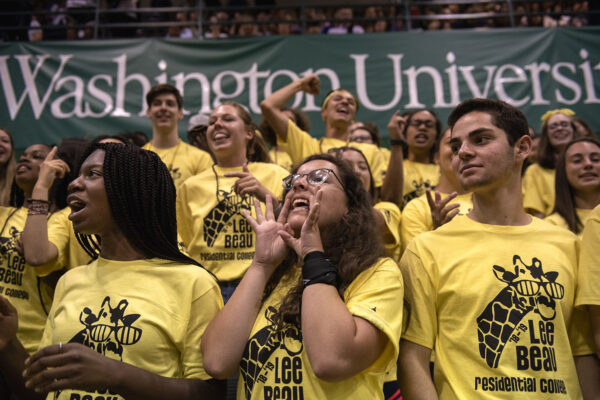James McCutcheon, a first-year student at Washington University in St. Louis, identifies as a moderate. His roommate is a Democratic Socialist. Will they get along?
“Yes, I hope so,” said McCutcheon. “That’s why I’m here — to learn from people who have different views and perspectives than my own.”
The new orientation workshop, “Dialogue Across Difference,” is helping students do just that. The program, which took place last week, reinforced the university’s commitment to both freedom of expression and inclusion and also provided students tools to use in difficult conversations.
“We can communicate across differences in identity and ideology and still hold the other person’s humanity center,” said Sarah Steinkamp of the Division of Student Affairs. “We don’t have to agree with one another. But can we be open to being changed by what we learn? Can we decide together to build a community that leans into its differences and grows from them?”
Steinkamp and Melanie Houston, of the Academy for Diversity, Equity, and Inclusion, covered a lot of ground in the workshop. They introduced students to communication theory (debate and dialogue are not the same), explained how our bodies react to verbal attacks (the sympathetic nervous system triggers the fight-or-flight response), explored why we sabotage relationships (our need to be right trumps our desire to connect) and offered strategies for better conversations (speak for yourself, avoid assumptions).
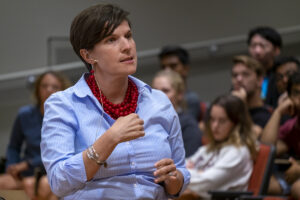
“Finding shared values, listening without judgement, knowing our true selves and articulating areas of conflict — that’s hard stuff,” Houston told the group. “And it becomes impossible if you don’t believe that everyone is a human with value equal to your own.”
Between lessons, students practiced communication techniques such as maintaining eye contact and asking open-ended questions which, on this night, veered to the silly. McCutcheon, for instance, asked the room if a hot dog is a sandwich.
“That’s not even open-ended,” Steinkamp said with a laugh. “Can we workshop that? Maybe, ‘What characteristics do you think make a hot dog a sandwich?”
McCutcheon knows he will face much more difficult questions in the classroom and the residence hall and says he will call upon the lessons learned on this night.
“A lot of us are from places that are pretty homogenous and have never had our ideas challenged,” said McCutcheon, who is from Westfield, N.J. “But if you want to get past the surface, you need to be willing for that to happen. I think this will help.”
That’s good news to Lori White, vice chancellor for student affairs. She conceived “Dialogue Across Difference” as a response to the so-called “cancel culture” on college campuses. Across the country, universities are facing stepped-up pressure to cancel controversial speakers or suspend students with offensive views. And the American Council on Education reports that 49 percent of college students favor campus policies restricting free speech.
“If you ask this generation of students if they favor free speech, they will overwhelmingly say ‘yes,’ White said. “But then they will add, ‘Until someone says something that I fundamentally disagree with or that hurts me or a community that I care about. Then I expect the university to step in.’ As an institution that values freedom of expression, that is not what we are about.”
And yet, how are new students to know how to navigate the conversational minefields of race, religion, identity and politics, White asked.
“We have to do more,” White said. “I hope our students came away from this experience better prepared to engage with people who are different from them.”
